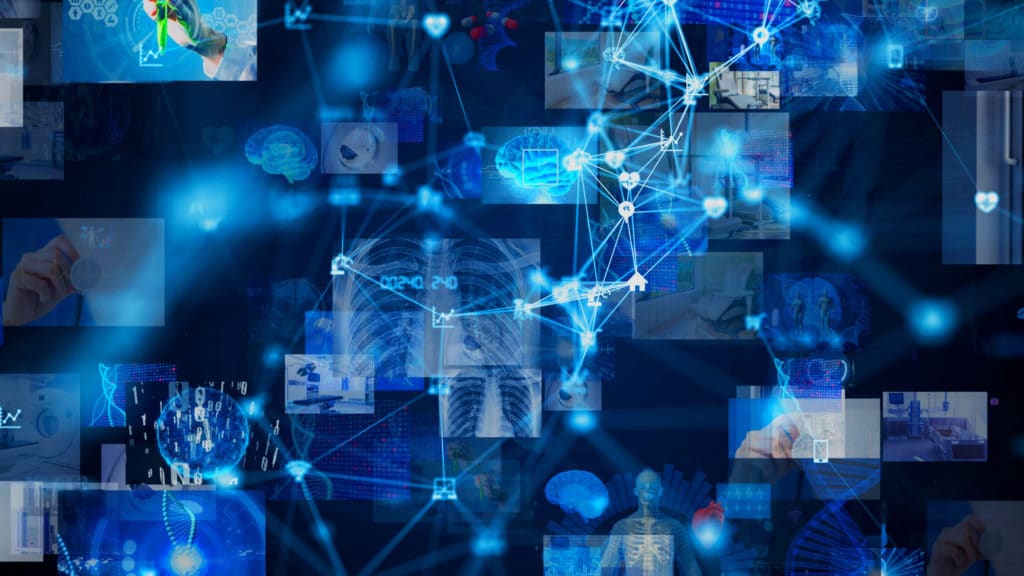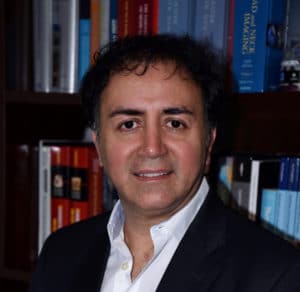To help improve equality in access to healthcare, McGill University Health Centre (MUHC) Foundation will be providing funding for an innovative project focused on improving access to healthcare for remote communities. This was made possible through a donation of $1 million from TD Bank Group.

This project, spearheaded by CAR members, Dr. Reza Forghani and Dr. Caroline Reinhold, will use artificial intelligence (AI) to analyze emergency medical images that require urgent review, helping to accelerate care and potentially save lives. This new technology will be mainly used for x-rays and CT scans, which are the cornerstones of emergency medical imaging and diagnosis.
The donation to the MUHC Foundation was made through the TD Ready Commitment, the bank’s corporate citizenship platform. The MUHC Foundation’s project is geared to help improve access to radiology which in turn can help improve early diagnosis and detection for the benefit of the health of remote communities in Quebec.
Using AI to Serve Patients
While AI technology is being used in radiology to read medical images and recognize diseases, including detection of conditions that present considerable risk for patients, the MUHC Foundation underlines that this investment will lead to better care, less unnecessary transport for patients and more collaboration between researchers and physicians.
“For remote communities who need hours to reach a specialized health care centre, a fast diagnosis can mean the difference between life and death. By using an AI-driven alert system to address barriers to radiological interpretation of urgent imaging findings, we hope to increase the accessibility and quality of specialized care provided to our remote communities”.
– Dr. Caroline Reinhold
Drs. Forghani and Reinhold are Co-Directors of the Augmented Intelligence & Precision Health Laboratory (AIPHL) of the Research Institute of the McGill University Health Centre (RI-MUHC). The aim is to prioritize radiology images revealing potentially fatal medical conditions and transmitting these images directly to the radiology specialist on duty as soon as they are obtained. The radiology specialist can then alert the remote hospital of the conditions that need to be promptly treated, such as a collapsed lung, bowel perforation or even a stroke.
“There has been a lot of excitement about the potential of AI. This project aims to move AI from theory to direct clinical practice, improving specialty level emergency care and health equity for our remote communities. Successful implementation can also provide a model for future AI diagnostic assistant tool deployment across the province.”– Dr. Reza Forghani
“In remote communities, every second counts when it comes to dispensing urgent care. Knowing that patients who suffer a stroke in rural communities are 30% more likely to die than patients in urban areas, this project developed by our experts has the potential to help save countless lives,” stated Julie Quenneville, President and CEO of the MUHC Foundation.
Thanks to the donation from TD, this initiative will have a positive impact on the entire McGill Réseau Universitaire Intégré de Santé et Services Sociaux (RUISSS) including 200,000 individuals living in the Nord-du-Québec and Abitibi-Témiscamingue regions, for whom the possibility of being transported to the MUHC is very limited. Eventually, this project could considerably impact all 7 million Canadians who currently live in rural communities.
Teleradiology in the North
To further increase access to Northern Indigenous communities, the CAR has partnered with Mathematics of Information Technology and Complex Systems (MITACS) to evaluate the quality of teleradiology services in these populations to improve workflow and to minimize patient transportation in remote healthcare facilities. The project is called Access to Medical Imaging in Nordic and Isolated Communities: Mixed Methods Evaluation of Quality and Cultural Safety of Services in Quebec. The ultimate goal is to better serve patients, minimize displacement for medical imaging procedures and to build the infrastructure that is essential to deliver radiology services.
“This project will evaluate the current situation with regards to use, availability, infrastructure and workflow process of teleradiology service in Northern and isolated communities of Quebec. This information will be very valuable to define the gaps that could be filled by the appropriate use of artificial intelligence. This quality assessment done in collaboration with McGill will be very synergistic with the AI project for Northern populations lead by Dr Reinhold and Forghani.”
– Dr. Gilles Soulez, CAR President
Providing direct access through teleradiology is also a cost-effective solution saving thousands in travel for patients. While an initial investment may be necessary, the long-term savings will be significant and more importantly an elevated standard of patient care. The CAR will embark on this project over the course of the next two years, championed by Dr. Gilles Soulez and Dr. Magali Nicolas-Vullierme, Université de Montreal.
“Through a qualitative and quantitative assessment of the current infrastructure’s status, workflow and quality of medical imaging services, we aim to understand whether the development of teleradiology could enhance health security of those communities, but also cultural safety of interested Indigenous communities.”
– Dr. Magali Nicolas-Vullierme

